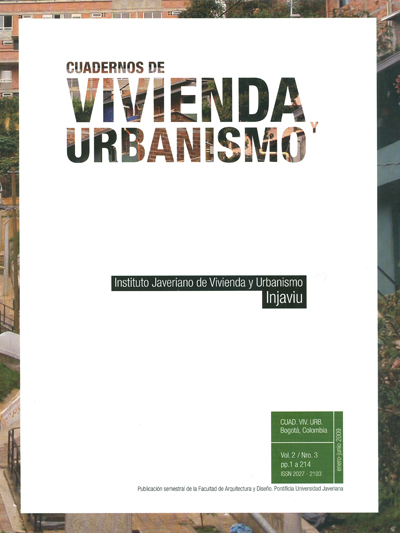Abstract
Tenement houses are collective rental buildings, located in central areas, subdivided illegally, where the service areas and courtyards are shared. The history of tenements goes parallel with the industrialization of São Paulo and the need for worker’s dwellings near the factories. The phenomenon spread and persisted through the years. Until 1985, tenancy was seen as an issue to be eradicated. Thereafter -when the political environment opened up- housing movements began their struggle to improve conditions. This research shows in what ways the problem was dealt with and which were the solutions proposed by five consecutive administrations between 1985 and 2005. Through literature review, study of documentation, field survey of housing conditions in tenement areas and comparative analysis of the proposed solutions, the conclusion was reached that the actions of housing movements were the most important factor leading to a guarantee of rights of the tenement houses’ inhabitants.
This journal is registered under a Creative Commons Attribution 4.0 International Public License. Thus, this work may be reproduced, distributed, and publicly shared in digital format, as long as the names of the authors and Pontificia Universidad Javeriana are acknowledged. Others are allowed to quote, adapt, transform, auto-archive, republish, and create based on this material, for any purpose (even commercial ones), provided the authorship is duly acknowledged, a link to the original work is provided, and it is specified if changes have been made. Pontificia Universidad Javeriana does not hold the rights of published works and the authors are solely responsible for the contents of their works; they keep the moral, intellectual, privacy, and publicity rights.
Approving the intervention of the work (review, copy-editing, translation, layout) and the following outreach, are granted through an use license and not through an assignment of rights. This means the journal and Pontificia Universidad Javeriana cannot be held responsible for any ethical malpractice by the authors. As a consequence of the protection granted by the use license, the journal is not required to publish recantations or modify information already published, unless the errata stems from the editorial management process. Publishing contents in this journal does not generate royalties for contributors.


